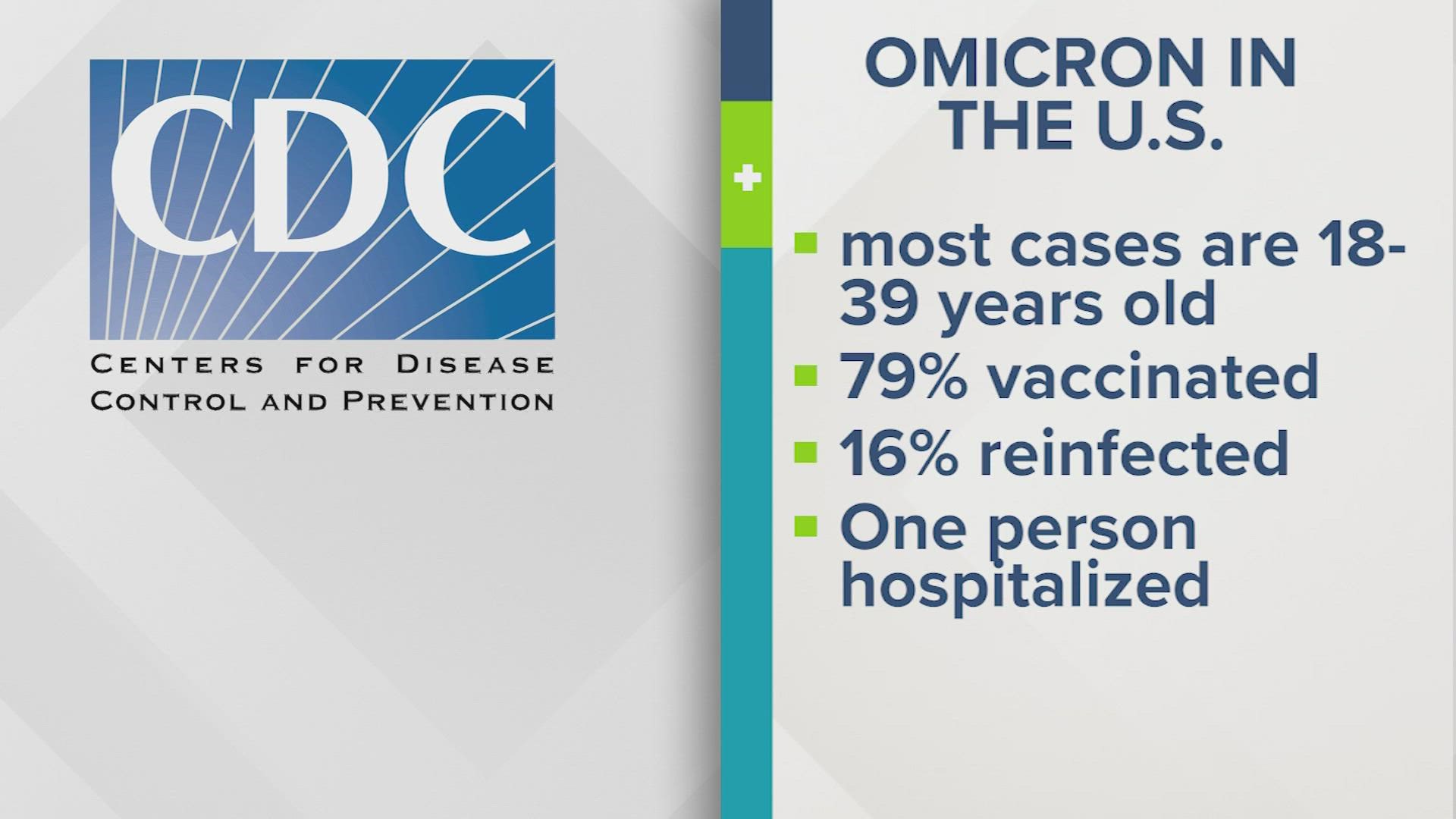JOHANNESBURG SOUTH, South Africa — The omicron variant appears to cause less severe disease than previous versions of the coronavirus, and the Pfizer vaccine seems to offer less defense against infection from it but still good protection from hospitalization, according to an analysis of data from South Africa, where the new variant is driving a surge in infections.
While the findings are preliminary and have not been peer-reviewed — the gold standard in scientific research — they line up with other early data about omicron's behavior, including that it seems to be more easily transmitted.
A two-dose Pfizer/BioNTech vaccination appeared to provide just 33% protection against infection during South Africa's current omicron wave, but 70% protection against hospitalization, according to the analysis conducted by Discovery Health, South Africa’s largest private health insurer, and the South African Medical Research Council.
The data were gathered from Nov. 15 to Dec. 7, during which time omicron was first spotted by scientists in South Africa and Botswana, and may change as time passes. Experts now say that omicron accounts for more than 90% of all new infections in South Africa, according to Discovery Health chief executive Dr. Ryan Noach said.
The country is experiencing rapid spread of the virus — concentrated in its most populous province, Gauteng. The seven-day rolling average of daily new cases in South Africa has risen over the past two weeks from 8.07 new cases per 100,000 people on Nov. 29 to 34.37 new cases per 100,000 people on Dec. 13, according to Johns Hopkins University. The death rate hasn't increased during that same period.
“The omicron-driven fourth wave has a significantly steeper trajectory of new infections relative to prior waves. National data show an exponential increase in both new infections and test positivity rates during the first three weeks of this wave, indicating a highly transmissible variant with rapid community spread of infection,” Noach said.
Although case numbers are rising, hospitalizations are not increasing at the same rate, leading the scientists to report that the risk of hospitalization from omicron is lower than delta or earlier variants. Hospital admissions for adults diagnosed with COVID-19 are 29% lower compared to the wave that South Africa experienced in mid-2020, after adjusting for vaccination status, according to the analysis.
The result shows that people who received two doses of the Pfizer vaccine had 33% protection against infection in the first weeks of South Africa’s current omicron-driven wave. That's a significant drop from the 80% protection against infection afforded during earlier periods.


The researchers say it's encouraging that the study shows that people fully vaccinated with Pfizer have 70% protection against hospital admission during the omicron surge. That's still a drop from the 93% protection seen in South Africa’s delta-driven wave.
The study shows that significant protection against hospital admission even among older age groups, with 67% in people aged 60 to 69 and 60% for people aged 70 to 79.
The analysis was based on examining more than 211,000 positive COVID-19 test results, 41% of which were for adults who had received two doses of the Pfizer vaccine. About 78,000 of the positive results were attributed to omicron infections.
The South African analysis supports an earlier assessment by U.K. authorities.
The U.K. Health Security Agency said Friday that new data from the U.K. confirm that omicron is more easily transmissible than other variants. Other studies suggest that both the AstraZeneca and Pfizer vaccines are less effective in preventing symptomatic infections in people exposed to omicron, though preliminary data show that effectiveness appears to rise to between 70% and 75% after a third booster dose.
The study also found that omicron poses a higher risk of reinfection. For individuals who have previously had COVID-19, the risk of reinfection with omicron is significantly higher than that of earlier variants.

